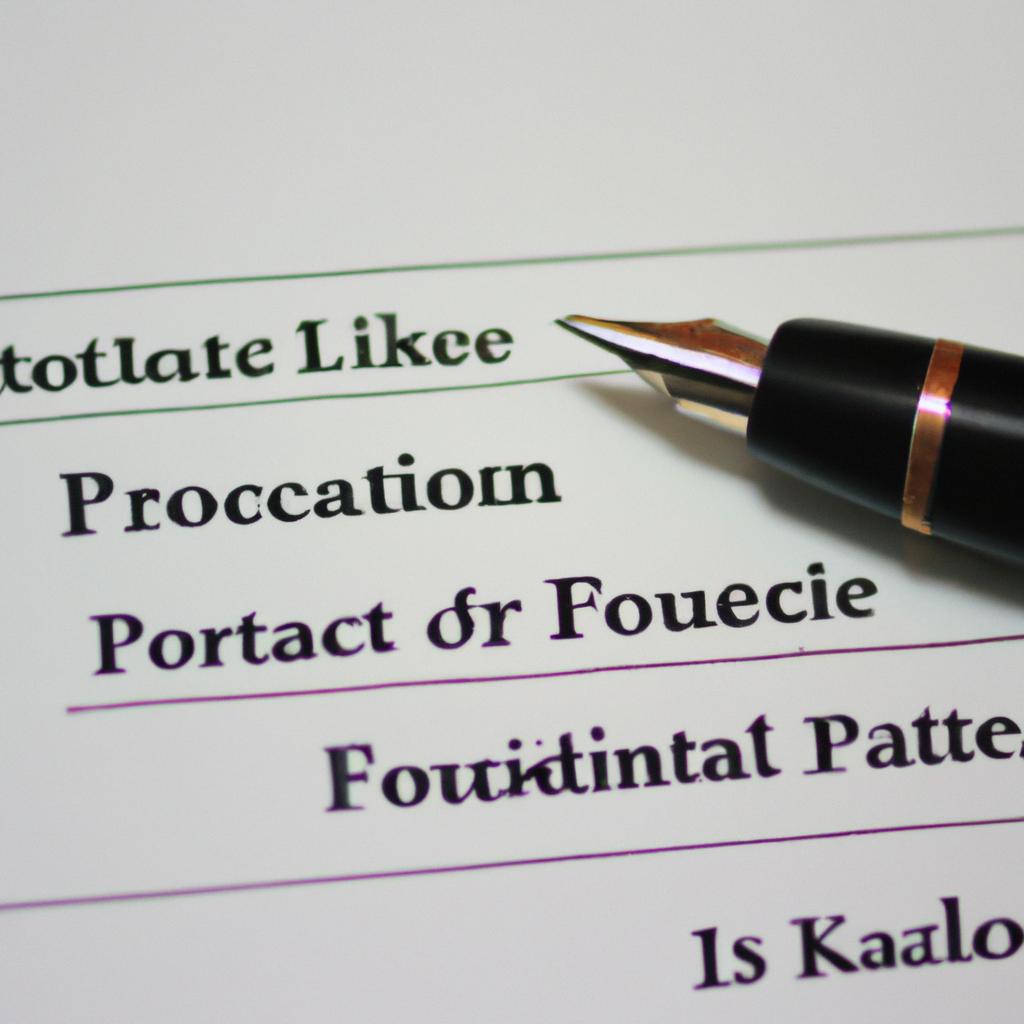In the intricate web of estate planning, the process of probate often stands as a formidable hurdle. As experienced legal practitioners at Morgan Legal Group, we understand the intricacies involved in navigating the probate process. One common question that may linger in the minds of individuals is, “how long does it take for a will to go through probate?” In this article, we will delve into this query with a neutral and informative approach, shedding light on the timeline and variables that can impact the duration of probate proceedings.
Understanding the Probate Process for a Will in New York
When a loved one passes away, their assets are distributed according to their will through a legal process known as probate. In New York, this process involves submitting the will to the Surrogate’s Court in the county where the deceased resided. The court will then oversee the distribution of assets and ensure that the wishes of the deceased are carried out.
How long does it take for a will to go through probate in New York? The timeline can vary depending on the complexity of the estate and whether there are any disputes among beneficiaries. On average, the probate process can take anywhere from several months to a year or more. It is important to work with an experienced probate attorney to navigate the legal requirements and ensure that the process runs smoothly.
| Probate Steps | Timeline |
|---|---|
| File the will with the Surrogate’s Court | 1-2 months |
| Notify beneficiaries and creditors | 3-4 months |
| Distribute assets | 6-12 months |

Key Factors Influencing the Timeline of Probate
Probate timeline can vary significantly depending on various key factors that influence the process. One of the main factors is the size and complexity of the estate. Larger estates with multiple assets and beneficiaries tend to take longer to probate compared to smaller, simpler estates. Additionally, the existence of disputes or challenges to the will can significantly delay the probate process. Resolving these conflicts can take time and prolong the overall timeline.
Another important factor that influences the timeline of probate is the efficiency of the executor or personal representative. An experienced and proactive executor can help expedite the process by promptly gathering and submitting all required documents, paying off debts, and distributing assets to beneficiaries. On the other hand, an inexperienced or negligent executor can cause delays and complications, leading to a longer probate timeline.

Strategies to Expedite the Probate Process
When it comes to expediting the probate process for a will, there are several strategies that can help streamline the proceedings. One effective method is to ensure that the will is properly drafted and executed according to state laws. This can help prevent any delays or challenges during the probate process. Another helpful strategy is to work closely with an experienced probate attorney who can guide you through the process and help you navigate any potential obstacles that may arise.
Additionally, gathering all relevant documents and information ahead of time can also help speed up the probate process. This includes gathering financial statements, account information, and any other relevant paperwork that will be needed during probate. By being proactive and organized, you can help ensure a smoother and quicker probate process. Remember, each probate case is unique, so it’s important to consult with a knowledgeable probate attorney to discuss your specific situation and determine the best .

Consulting with an Experienced Estate Planning Attorney for Efficient Probate Proceedings
Understanding the probate process and how long it takes for a will to go through probate can be crucial for efficient estate planning and distribution of assets. Consulting with an experienced estate planning attorney can help navigate the complexities of probate proceedings and ensure a smooth transition of assets to beneficiaries.
Probate timelines can vary depending on a variety of factors, including the size of the estate, potential conflicts among beneficiaries, and the complexity of the estate planning documents. Working with a knowledgeable attorney can help expedite the probate process and minimize delays. Additionally, having proper estate planning documents in place, such as a comprehensive will and trust, can streamline probate proceedings and provide clear instructions for asset distribution.
Q&A
Q: How long does it typically take for a will to go through probate?
A: The duration of the probate process can vary depending on various factors, but it commonly takes anywhere from a few months to a year.
Q: What are some factors that can affect the timeline of probate?
A: Factors such as the complexity of the estate, any disputes among beneficiaries, and the efficiency of the court system can all impact the duration of probate.
Q: Is there anything that can be done to expedite the probate process?
A: Hiring an experienced probate attorney, providing all necessary documents and information promptly, and avoiding disputes among beneficiaries can help speed up the probate process.
Q: Are there any specific steps that must be completed during probate?
A: Yes, there are several steps that must be completed during probate, including validating the will, inventorying and appraising assets, paying off debts and taxes, and distributing assets to beneficiaries.
Q: What happens if there are disputes among beneficiaries during probate?
A: Disputes among beneficiaries can significantly slow down the probate process. In such cases, it may be necessary to seek mediation or even have the court make a final decision.
Q: Can a will be contested during probate?
A: Yes, a will can be contested during probate if someone believes it is invalid or was created under duress. Contesting a will can further prolong the probate process.
To Conclude
In conclusion, navigating the probate process can be complex and time-consuming. The length of time it takes for a will to go through probate can vary depending on various factors such as the size of the estate, the complexity of the will, and any disputes that may arise. It is important to seek guidance from a legal professional to ensure a smooth and efficient probate process. Remember, patience and understanding are key during this often overwhelming time. May the journey through probate be as swift as possible, allowing you to focus on honoring the wishes of your loved one.
 Probate is a legal process that occurs after a person passes away, where their assets are distributed to their heirs or beneficiaries. If the deceased had a will, the will must go through probate before their estate can be settled. This process can be quite lengthy and complex, and many people wonder how long it takes for a will to go through probate. In this article, we will discuss the factors that can affect the duration of the probate process, as well as some practical tips that may help to expedite the process.
Probate is a legal process that occurs after a person passes away, where their assets are distributed to their heirs or beneficiaries. If the deceased had a will, the will must go through probate before their estate can be settled. This process can be quite lengthy and complex, and many people wonder how long it takes for a will to go through probate. In this article, we will discuss the factors that can affect the duration of the probate process, as well as some practical tips that may help to expedite the process.
Factors Affecting the Length of Probate:
1. State Laws:
The laws governing probate and estate administration vary from state to state. Some states have streamlined probate processes, while others may be more time-consuming. For example, in California, probate can take up to 18 months, while in Texas, it can be completed in as little as six months. Therefore, the first factor that can impact the duration of probate is the location where the deceased lived and owned property.
2. The Size and Complexity of the Estate:
The size and complexity of the estate can also significantly impact the length of probate. The more assets and debts the deceased had, the longer it may take to settle their estate. If the estate includes assets in multiple states or countries, it can further prolong the probate process. This is because each state or country may have different laws and regulations, which can slow down the process.
3. Any Disputes or Contested Wills:
If there are any disputes or challenges regarding the will, the probate process can be significantly delayed. A contested will can lead to a lengthy court battle, which can stall the distribution of assets to beneficiaries.
4. Availability of Required Documents:
The probate process requires various documents, such as the original will, death certificate, and financial statements. If any of these documents are missing or incorrect, it can prolong the process. It is crucial to ensure that all necessary documents are available and accurate to avoid any delays.
5. Inventory of Assets:
The executor of the estate is responsible for preparing an inventory of all the deceased’s assets, including real estate, investments, and personal property, such as jewelry or artwork. This inventory must be submitted to the court, and any inaccuracies or discrepancies can delay the probate process.
How Long Does Probate Take?
Now that we have covered the factors that can affect the duration of probate let us discuss how long probate typically takes. As mentioned earlier, the duration of probate can vary significantly depending on the circumstances. However, on average, probate takes six months to two years to complete. Here is a breakdown of how the timeline typically looks:
1. Filing the Will:
The first step of the probate process is filing the will with the appropriate court in the state where the deceased lived. If the will is valid, the court will appoint an executor or personal representative to oversee the probate process.
2. Notifying Heirs and Creditors:
Once appointed, the executor must notify all creditors and potential heirs of the deceased’s passing and the probate process’s commencement. Creditors have a certain amount of time, usually three to six months, to make any claims against the estate.
3. Inventory of Assets:
As discussed earlier, the executor must prepare an inventory of all the deceased’s assets. This process can take several weeks to several months, depending on the size and complexity of the estate.
4. Settling Debts:
Before the assets can be distributed to the heirs, all of the deceased’s outstanding debts must be settled. This can take several months to a year, depending on the number of creditors and the complexity of the debts.
5. Distribution of Assets:
After the debts have been settled, the remaining assets can be distributed to the beneficiaries. This can take anywhere from a few months to a year, depending on the size of the estate and the number of beneficiaries.
6. Closing the Estate:
Once all the assets have been distributed, the executor can apply to close the estate, and a final hearing will be scheduled. This hearing usually takes place within six to nine months from the date of filing.
Tips to Expedite the Probate Process:
1. Keep Accurate Records:
To ensure a smooth probate process, it is crucial to keep accurate records of all the deceased’s assets, debts, and financial statements. This will save the executor time and reduce the chances of any errors that could delay the process.
2. Hire an Experienced Probate Attorney:
Probate can be a complicated and time-consuming process, and having an experienced probate attorney by your side can help to expedite the process. They can guide you through the process and handle any legal challenges or disputes that may arise.
3. Consider a Trust:
Another way to avoid probate and expedite the distribution of assets is by setting up a trust. Assets held in a trust do not go through probate and can be distributed to beneficiaries immediately after the grantor’s passing.
Conclusion:
In conclusion, the length of probate can vary significantly depending on various factors, including state laws, the size and complexity of the estate, any disputes or contested wills, and the availability of required documents. On average, probate takes six months to two years to complete. However, by keeping accurate records, hiring an experienced probate attorney, and possibly setting up a trust, you may be able to expedite the process. It is best to consult with a probate attorney for tailored advice on your specific situation and location.

